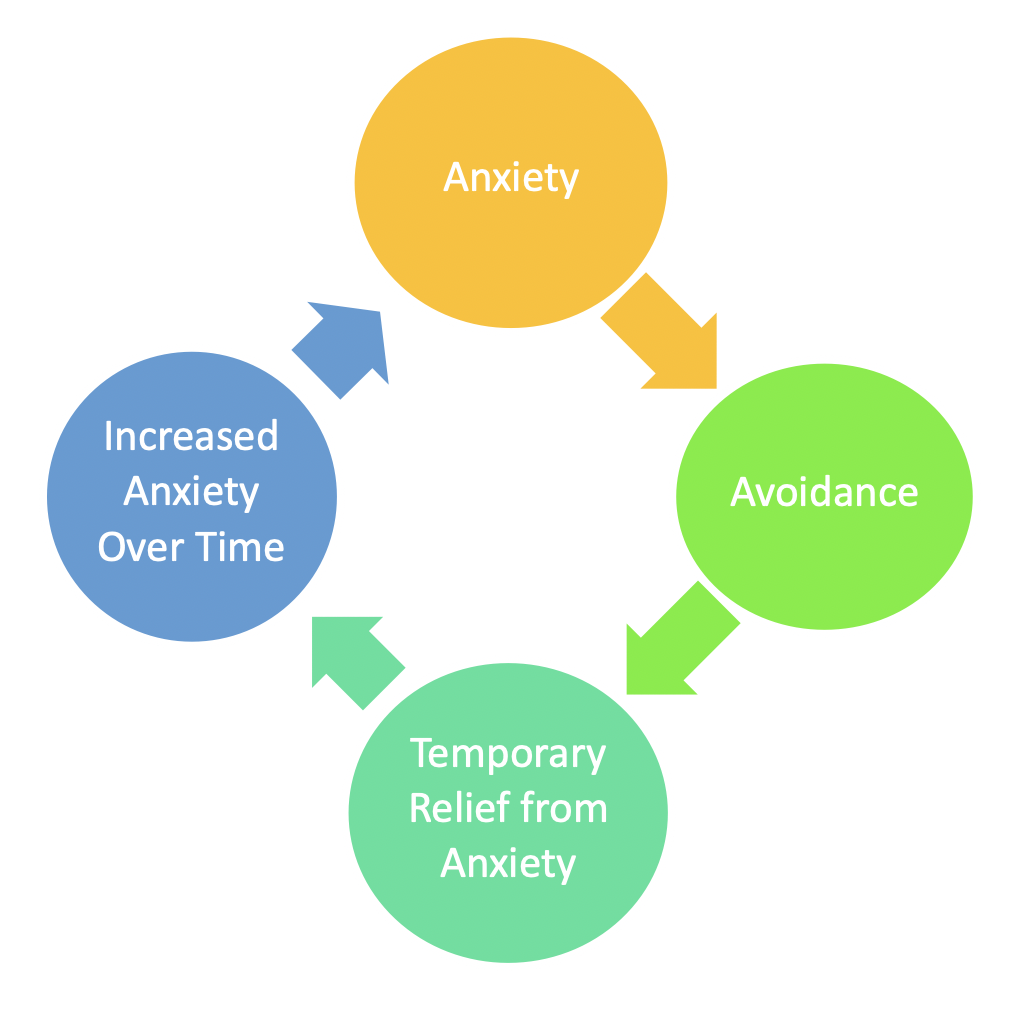
Develop Optimism and Mental Resilience to Conquer Anxiety
“You can’t always control what goes on outside. But you can always control what goes on inside” - Wayne Dyer
Anxiety is a learned physiological and emotional response, which is triggered when the mind detects a “threat” - either “real” or “imagined”. It can be an uncomfortable feeling in our body, a worry or an unpleasant emotion. Anxiety is our body’s smoke alarm of our survival instinct. We feel anxious when we anticipate the worst possible outcome and is compounded by an underestimation of our ability to cope with the situation. The threatening or negative information overwhelms us into ignoring the cues to conquer the challenge.
Having some level of anxiety is healthy. In its optimum level, anxiety sharpens our concentration and reinforces our ability to bring out our best capability to conquer or solve an issue. Beyond a certain threshold, anxiety loses its catalytic properties and can become debilitating, even crippling our ability to solve problems.
The anxiety cycle starts initially with avoidance response to the anxiety-producing situations, as a relief mechanism for the uncomfortable stimulus. However, this “perceived” relief is temporary. Our brain develops the habit of avoiding difficult situations. Unresolved stimuli gradually accumulate over time, only to be released as an avalanche of anxious emotions that can only overwhelm. Understanding this cycle of anxiety, can help us interrupt this cycle and can enable us to conquer anxiety.
 ”Cycle of Anxiety”
”Cycle of Anxiety”
Anxiety can be triggered by external or internal experiences. We must understand these triggers, take control of our thoughts and change our environment in order to get lasting relief from anxiety. We can learn to conquer our anxiety by acquiring some healthy coping tools.
During this Pandemic, we are faced with unforeseen and unparalleled triggers for anxiety – whether it is long periods of isolation, monotony of repetitive routines without breaks, long hours of work, lack of social interaction and often long intervals between contact with loved ones. Feeling of stress and anxiety is inevitable when faced with such challenging circumstances. We can reduce anxiety by developing our optimism and mental resilience – which are our life jackets against the rough seas of adversity and uncertainty. Resilience helps us overcome, steer through and grow from these challenging experiences by bouncing back from setbacks. By learning to be optimistic we focus on the positive cues around us amidst these challenges, instead of assimilating the worst-case outcomes. Optimism is not just positive thinking, it involves hope, goal-driven behaviour and self-belief. Resilience and optimism can be cultivated to conquer anxiety and be able to deal with stressful situations.
Embrace these simple tips to increase your resilience by bringing optimism into your life and get lasting relief from your anxiety:
1. Changing our narrative
When we are anxious, we tend to come up with a narrative premised on a worst-case scenario. We tend to focus on the aspects which is not going well, and a chain of negative thoughts follow suit augmenting the perception to appear more real. By learning to be optimistic, we can change the way we feel by flipping our inner script and choosing a more optimistic outcome. We can start by evaluating our negative, self-defeating thoughts and replacing them with more empowering positive affirmations. By practicing this new way of thinking, we can learn to act like a victor instead of being a victim to our negative thoughts.
2. Looking for an alternative explanations
When things are not looking good, we should realise that beneath all the negativity on the surface, there is always something good hidden underneath. The best way to face challenges is to be proactive in exploring an alternative track, which can open a new door of opportunity. Discover a reason to be thankful during times of difficulties. For instance, when working from home during the pandemic, learn to be thankful for getting quality family time. Look for opportunity even during toughest of times.
3. Focusing on things under our control
When we feel anxious, we tend to catastrophise and anticipate the worst. If we get caught up with such “what-if” thinking, it can turn even a minor problem into a catastrophe which can overwhelm. We cannot always control what is happening outside, however, we can change our thoughts and how we react to those thoughts. To conquer anxiety, we must make a choice to spend our energy on a positive focussed strategy, resulting in taking ownership of our thoughts and actions. We need to identify what’s within our control and what’s outside of our control. Learning to control and direct your thoughts and emotions is possible with persistent effort. We can realistically assess the likelihood of a negative event actually happening. Exploring one’s thoughts and understanding the probability of it happening can put things into perspective. We can acknowledge that bad things happen in life but choose not to ruminate over them. For example, when we are overwhelmed at work, we can decide how to change the way we work or change our job and choose joy over being burnt out at work.
4. Surrounding ourselves with optimists
Optimism is contagious. When you feel anxious, spend time with cheerful people as this can make you feel better. If we surround ourselves with optimists, seeing them face their challenges with confidence can inspire us towards positive change. Being around positive, and supportive people can build our optimism and reduce our stress. It can empower us to believe in our abilities to manage stress.
5. Establishing connection with people in real ways
Finding someone to speak to regularly can be encouraging and helpful. We cannot get through our life alone. We have to cultivate positive and supportive relationship with other people. A feeling of being alone in facing challenges can compound the feeling of helplessness. By investing in true relationships and connections, we are building our support network. Our relationships with our loved ones can provide the cushion when we crash and need healing. Real interaction with people can calm us. We can make use of our support system when we need to talk to someone. We can call a friend or a relative and share our feelings, and listen to their stories. Staying connected with friends and family enables us to thrive and get recharged. These are situations where it is OK to seek out professional help by talking to trusted counsellors or therapists. Anxiety is on the rise because people are socially isolated and often reluctant to reach out to professional counsellors.
6. Being aware of thoughts and emotions
Observing and being aware of our thoughts and feelings, makes it easier for us to manage them. Being mindful of our thoughts can help us avoid falling into traps of negative thoughts. When faced with challenges, people inevitably get trapped to unhelpful thinking styles which undermines our resilience. We can deal with this by being aware of such self-critical thoughts, so that we can challenge the critical voice inside our head and avoid being a victim of our automatic negative thoughts. When we feel anxious – it is best to pause and evaluate our thinking. We can try and take control and find a way to put a positive perspective on our thoughts.
7. Waking up with a positive thought
We should wake up every morning with a positive thought. Beginning our day by thinking about things we appreciate and are grateful for can energize us with a positive mindset. Instead of saying, “I have to commute to work,” we can try to shift to thoughts like, “I am healthy enough to go to work” or “I have a job to maintain a healthy lifestyle.”
8. Being mindfully aware of the present moment
To overcome anxiety, we have to be more mindful of our body and mind. Shifting attention to the present moment can bring a sense of control over anxiety. We feel anxious from being stuck in the past or worrying about the future. Mindfulness exercises coupled with deep breathing helps relieve stress and restore our nervous balance. By being fully present in the moment, we can overcome anxiety.
9. Engaging in leisure activity for fun
Engaging in enjoyable hobby can act as a release for our stress and alleviate our moods. It is important to invest in self-care and to take out time to do something we love and enjoy. It can be anything that lightens our mood, such as going for a walk, playing an instrument, drawing, colouring a mandala, playing with our pet or just listening to music.
10. Being open to humour
We can keep anxiety at bay by being open to some fun and laughter. Watching comedy or having a fun time or just relaxing with friends can provide opportunities to break the anxiety cycle. During difficult times, we can take time off to smile or laugh. Looking for humour in everyday life is a good way to feel less stressed.
11. Following a healthy lifestyle
Engaging in any physical exercise can boost our mood and can reduce anxiety and stress. A healthy diet helps us get improved sleep and energizes our mind and body. Regular exercise releases healthy endorphins in our brain which improves our mood and releases built-up tension that is stored in the body. Sleep, healthy eating and physical activity together help in maintaining our emotional balance.
12. Being compassionate to self and others
We all deserve to be loved and cared for. Let’s show love and compassion towards ourselves and people around us. When we get caught up in our worries, we tend to become self-centred. We can develop optimism by collaborating with others. When we give to others, we get a lot more out of it. We should reach out to people for help and support when we need it.
The next time we feel anxious, let’s pause and remember that things are out of sync, but we have the tools to get lasting relief from anxiety. Building optimism and a stronger mental resilience may take some time, but it can be achieved. During uncertain times like this pandemic, it is important to stay resilient and find long-term support systems.
When we choose optimism and learn to be resilient in the face of adversity, we can conquer our fear and deal with uncertainty. Our optimism and resilience can be our anchor to hold onto during stormy days and this will protect us from drifting away!
- Sudhasri Panigrahi, Positive Psychotherapist and Mental Health & Wellbeing Counsellor at Central & Stanley Wellness


